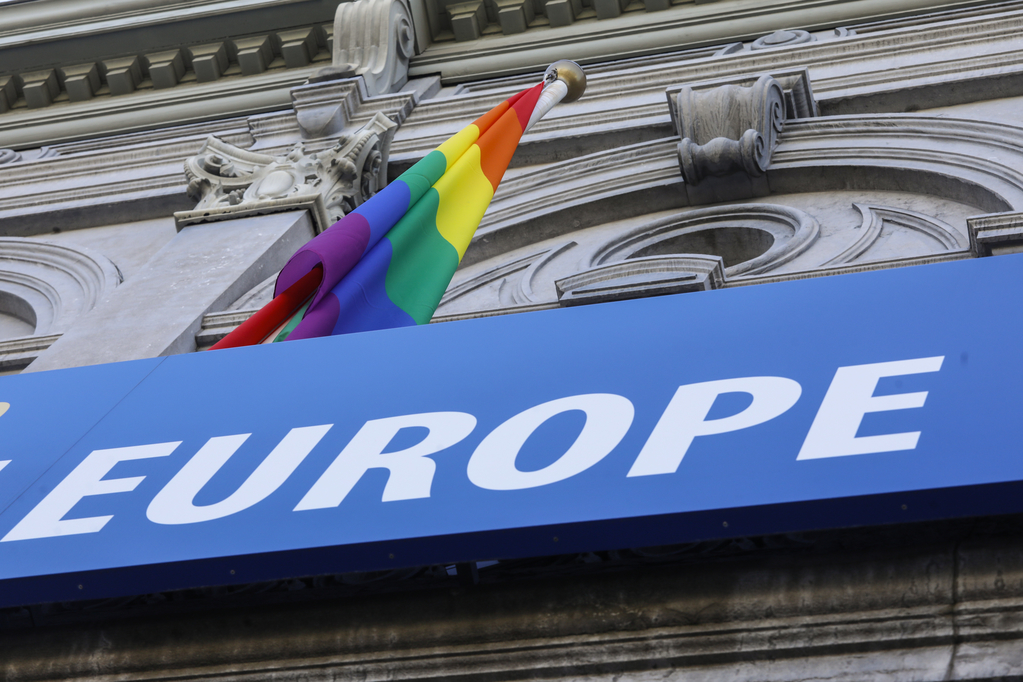Is The EU an LGBTIQ Freedom Zone?

The ambition is right, but the reality is very different, says leading European LGBTI rights organisation
In response to the proliferation of over 100 so-called ‘LGBT-Free zones’ in Polish municipalities, the European Parliament today is debating a resolution declaring the EU an LGBTIQ Freedom Zone. It’s a strong symbolic gesture, but clear action needs to follow to make this a lived reality, according to ILGA-Europe.
The European Parliament (EP) in this weeks plenary session will debate and adopt a Resolution declaring the European Union (EU) an LGBTIQ Freedom Zone. Europe’s leading LGBTI organisation, ILGA-Europe, say much work needs to be done to align the resolution with the truth of LGBTI people’s lives in Europe.
According to Katrin Hugendubel, Advocacy Director with ILGA-Europe: “It is great to see the European Parliament wants the EU to be an ‘LGBTIQ Freedom Zone’, in other words a space where LGBTIQ persons can be who they are and love whom they love, free and safe. At ILGA-Europe, our day-to-day work reminds us very clearly that a lot still needs to be done to makes this a reality across the EU. We need to see more concrete action, from the European Commission, the European Parliament, the European Council, as well as national governments and policy-makers, and from regional and local authorities.”
Last month, ILGA-Europe published its ‘Annual Review of the Human Rights Situation of LGBTI People in Europe and Central Asia 2021’, clearly setting out how far the reality of LGBTI people across the EU is from living in a ‘freedom zone’.
Beyond the stories about Poland and Hungary, which have made most of the anti-LGBTIQ headlines in recently, there are so many ways in which the EU and its member states are falling short of ensuring LGBTI are free and equal in the EU, including:
- Member states such as Portugal and Italy have yet to legislate to protect LGBTI people against discrimination outside the labour market.
- The CJEU judgement in the Coman case, which three years ago established that same-sex spouses are fully recognised as spouses under the EU freedom of movement directive, has to this day not been enacted by the Romanian state, and the partner of Adrian Coman still has not been granted a residence permit in Romania, leaving other same-sex couples in similar situations in limbo.
- Children of a same-sex couple can lose one parent just by crossing an EU border, while the recent case of a child born to a same-sex couple not being recognised by the Bulgarian authorities, currently leaves that child stateless.
- Two years after the introduction of the first LGBT-free Zones and Family Rights declarations in Poland, the EC still has not brought infringement procedures against the Polish government, even though such declarations clearly infringe on the principle of non-discrimination set out, for example, in the EU employment directive.
- Only Malta, Portugal and some regions in Spain have banned non-medically necessary surgeries on intersex children.
- The Czech Republic, Finland, Latvia, Romania and Slovakia still require trans people to be sterilised before having access to legal gender recognition, while Hungary last year abolished any procedure to have legal gender recognition for trans people recognised.
Hugendubel added: “To ensure the EU will become a true LGBTIQ freedom zone, the Commission has to make full use of all tools in its box. It should ensure full implementation of all relevant EU directives and CJEU judgements in every member state. It should ensure that all member states spend EU funding in full respect of the principle of non-discrimination and respect for fundamental rights. It has to hold EU governments accountable to the principles set out in the EU treaties and the Charter for Fundamental Rights.”
According to Evelyne Paradis, Executive Director of ILGA-Europe: “It is great to see clear commitments to LGBTIQ equality from the European Parliament through this resolution, as well from the European Commission through the ‘EU LGBTIQ Equality Strategy’. Now that the EU is an LGBTIQ Freedom Zone, we need to see all actors using the full range of tools at their disposal to ensure that respect of LGBTIQ rights is guaranteed. Otherwise there is a big risk of losing credibility.”
For further comment, contact: Ana Muñoz Padrós, ILGA-Europe: ana@ilga-europe.org, +32 493 35 60 55